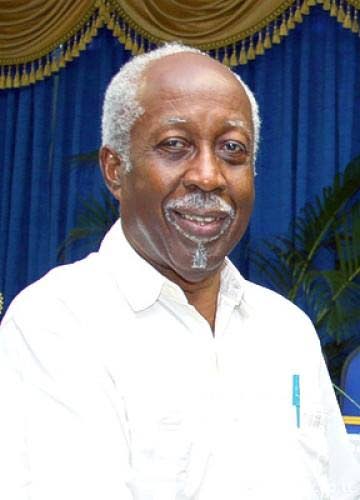Devolution? What devolution?

REGINALD DUMAS
THA CHIEF Secretary Farley Augustine wants devolution of power and authority to the THA. In principle, I agree with him. I say “in principle” because in actual practice the devolution process is complex – merely saying in a law that such-and-such has been devolved is by no means enough. What, for example, about the readiness of the devolvees (if I may coin a word)?
But first, what is devolution? Let me quote the late Patrick Manning on the difference between “devolution” and “decentralisation.” Speaking in the House of Representatives on July 7, 2008, he said:
“Decentralisation means decentralising the executive function, and the policy formulation remains at the centre…Devolution is a decentralisation of the policy-making function…”
Manning firmly opposed devolution. It could, he said, “result in the fragmentation of the society…(and of) a unitary state…It could” (horrors!) “end up into a federation…The PNM is afraid of devolution in a society…as plural as this, and where the differences are not just based on race, but also…on religion and other differences that exist between us, and we have to watch that.” Is today’s PNM of the same mindset? May we please hear?
And yet, devolution has for decades been taking place in Britain – look, for instance, at the number of acts transferring powers from the UK Government to Wales and Scotland. In essence, Britain is now a federation, though it doesn’t call itself that. (There are many in Wales who want a formal federal arrangement, and a significant proportion of Scots prefers independence. But independence hasn’t happened, and the current travails of the Scottish National Party suggest it won’t happen soon, if at all.)
May I add that our belief that TT is legally a unitary state has no constitutional underpinning? Section 1 of the Constitution, the supreme law of the land, defines TT merely as “a sovereign democratic state.” The unitary state argument, brilliantly popularised by Eric Williams, is a political one designed to keep overall control of TT in the central government.
If you have any doubt about that, and think that the THA’s “areas of responsibility” in the Fifth Schedule to the 1996 THA Act really mean something, here is what Ramesh Maharaj, the attorney-general who piloted that document through Parliament, told the Senate on November 28 that year, a few days before the legislation was passed:
“In respect of all the matters in the Fifth Schedule, the (THA)…can formulate, articulate and debate – which they are entitled to do, and it is a very good thing for them to be able to do – but the Cabinet of TT, which is responsible for national policy, overrides and has the power to supervise the (THA) affairs…What is wrong with that?”
That isn’t devolution, that’s control from Port of Spain. Which central government since has disagreed? Even the parliamentary joint select committee on Tobago internal self-government said in its June 2021 report that it was “confident in the unitary state and optimistic about its future,” and spoke approvingly of “unitary states where decentralisation is regarded as a key ingredient to (sic) national development.” Patrick Manning must be smiling somewhere. Devolution? What devolution?
So those who seek devolution face, and have been facing, major political and cultural hurdles. What in my opinion needs to take place (and I’ve repeatedly recommended this in the past) is direct and dispassionate dialogue across Tobago, explaining the terms being used, their meaning, the pros and cons of autonomy, etc, and have the people make up their own minds. If there is major island-wide support for autonomy with meaningful devolution, Port of Spain would find it difficult to pretend that nothing significant is happening; there could be electoral consequences.
In the meantime, the Prime Minister and the Chief Secretary (and members of his administration), instead of striking pugilistic stances towards each other, might bear in mind section 31 of the THA Act, which reads: “The Prime Minister and the Chief Secretary shall hold regular discussions with a view to formulating administrative and legislative mechanisms for the promotion of harmony in the affairs of Trinidad and Tobago.”
“Shall hold.” In other words, there is an obligation on both parties to have such discussions. Are they having them? After nearly 18 months of PDP/Independent/TPP-to-come incumbency, what mechanisms have been formulated? What harmony promoted? Instead, we’ve recently been witnessing much finger-pointing and political pugnacity, with condescending and sometimes inflammatory language to match. Perhaps that approach energises fervent supporters and satisfies certain egos, but it’s inimical to strategic thought and to the best interests of Tobago, and of Trinidad and Tobago.
“A soft answer turneth away wrath” (Proverbs, 15:1). And, often, public silence is the best path to tread.

Comments
"Devolution? What devolution?"